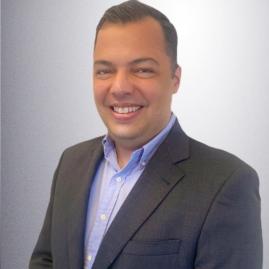
Disclosure: This post is sponsored by Petrobras and reflects their views, opinions, and insights.
Flaubert Matos Machado is the General Manager for Strategy and Center of Excellence in Safety, Environment and Health at Petrobras and a keynote speaker at the 9th CCPS Latin American Conference on Process Safety. I spoke with Flaubert about his and Petrobras’ involvement with the conference. Read our interview below.
The 9th CCPS Latin American Conference on Process Safety will be taking place October 18-20, 2022 in Rio de Janeiro, Brazil. Topics covered include leadership and culture in process safety, emerging topics, cyber risks and process safety technologies, among others. You can view the conference's program and register on the conference website.
What is your role at the 9th CCPS Latin American Conference on Process Safety?
It is an honor for me to participate at the 9th CCPS Latin American Conference on Process Safety conference representing Petrobras and as a keynote speaker. It is an opportunity to emphasize the high value that process safety has for Petrobras within the process safety community. Risk Based Process Management is one of our five core values on our Health, Environment and Safety Policy.
Nowadays, we experience a continuous process of “raise the bar” in the stakeholders demands for the entire oil and gas industry, which implies higher requirements from regulatory agents. We must increasingly invest in the safety of our operations to ensure the sustainability of our industry.
Petrobras has an important track record with CCPS. As process safety is fundamental to our business, our partnership with CCPS is crucial, inspiring us with its guidelines and lessons learned from the worldwide industry.
This year the Latin American Conference on Process Safety takes place in Brazil, Petrobras is very proud to participate and be a sponsor of the event. Our company understands the importance of promoting this kind of discussion, bringing together the process safety community to share experiences, and to promote the best knowledge on this very important matter.
How is your work as a process safety professional critical to your particular job or the industry where you work?
Our main role at Petrobras is to establish corporate guidelines for process safety management within all of our operations. We seek to convey the organization's expectations and requirements, aiming for excellence in asset risk management. Process safety is a fundamental factor for ESG (Environmental, Social and Governance) management since any major accident can have severe consequences for the environment and society.
At Petrobras, we recently launched a structured program to create a process safety competence development track, whose audience is not only made up of specialists in the field, but all those who work in activities such as operation, maintenance, and project engineering. We believe that process safety is a multidisciplinary issue, which starts with the design of projects and goes through all operations.
What are the most important skills a process safety professional should have?
One of the most important skills for a process safety professional is a deep understanding and knowledge of risk analysis techniques. As specialists, they are responsible for leading the risk analysis of our projects and our operating assets throughout their life cycle by using structured techniques. Another very important capability is the analysis of human factors within process safety, which is seen as extremely important for the development of resilient systems.
What message would you like the audience to take away from the conference?
It is important that the participants of this conference take with them the message that process safety will always be a strategic pillar in organizations, especially in industries that work with high return perspectives accompanied by high risk taking, such as the oil and gas sector.
It is very important that we continue to invest in training and continuous qualifications of the company's technical staff. At Petrobras, we recently created a specific career emphasis for process safety, understanding that the search for specialists in this area is an action that aims to guarantee the future our operations.
I believe we need to increasingly value care for the environment, social impact of organizations, and the governance necessary for organizations to effectively manage their operational risks. Currently, such expectations are reflected on the ESG agenda and stakeholders expectations. Process safety competencies represents a critical asset to be managed looking forward a sustainable future.
How do you see process safety impacting industry over the next five years?
For each new exploratory frontier, new technological challenges appear. Working on the edge of technology may imply the incorporation of new hazards into our operations. Process safety is crucial for assessing these new risks that need to be managed.
The energy transition that is demanded of the oil and gas industry also implies a profound transformation in our industry. This transformation also requires new ways of designing and operating, along with the incorporation of new technologies. The assessment of the risks involved in these new processes is crucial for maintaining excellence in risk management.
There is a noticeable a social expectation for company decision makers to have process safety competencies, from the lowest management levels to directors and board members. This is a challenge for most organizations, and accomplishing this tends to influence companies’ short- and long-term decisions, and to consider aspects of operational risk management, increasing its perceived value within the organization.
Learn more about the 9th CCPS Latin American Conference on Process Safety.

Flaubert Matos Machado
Flaubert Matos Machado has been working in Petrobras for 19 years, beginning as an equipment engineer. He has held leadership positions in offshore production facilities operations, maintenance, inspection and HSE.
Disclosure: This post is sponsored by Petrobras and reflects their views, opinions, and insights.


